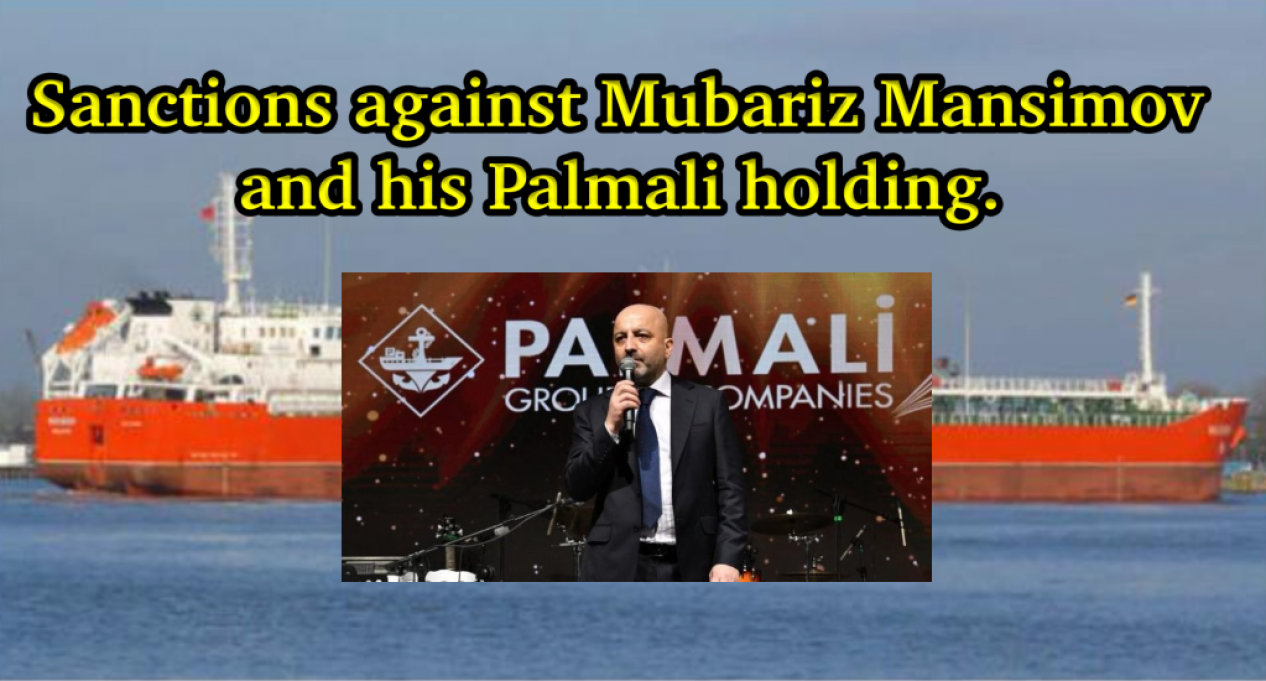
On July 18, 2025, the inclusion of the Azerbaijani-owned tanker Nizami Ganjavi among 105 vessels listed in the “shadow fleet” section of the European Union’s 18th sanctions package against Russia raised numerous questions within the public. Subsequent clarification confirmed that the tanker is not part of the Republic of Azerbaijan’s maritime fleet and does not operate under the country’s flag.
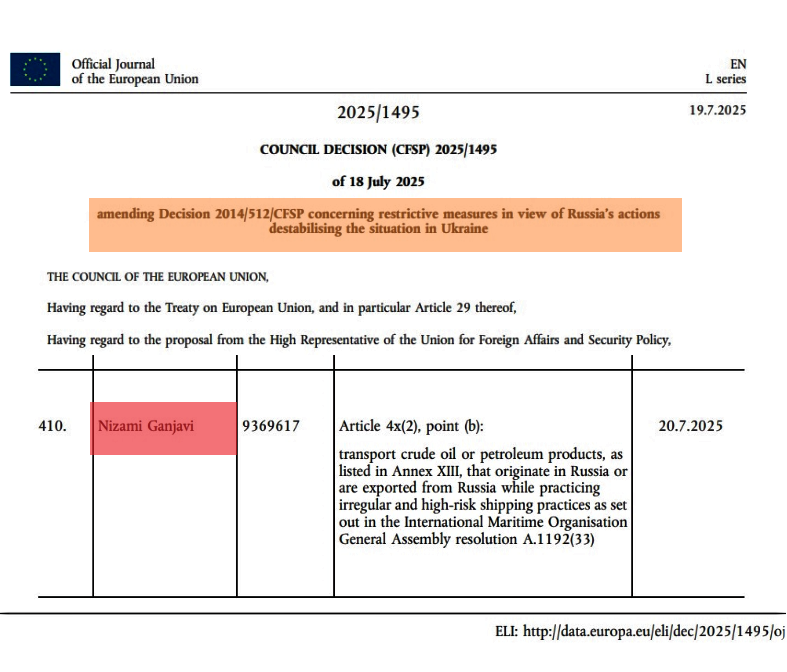
It was determined that the tanker Nizami Ganjavi, which appeared on the list of sanctioned vessels, is owned by Palmali Holding - a company registered in Türkiye - and operates under the Russian flag as part of that country’s maritime fleet.
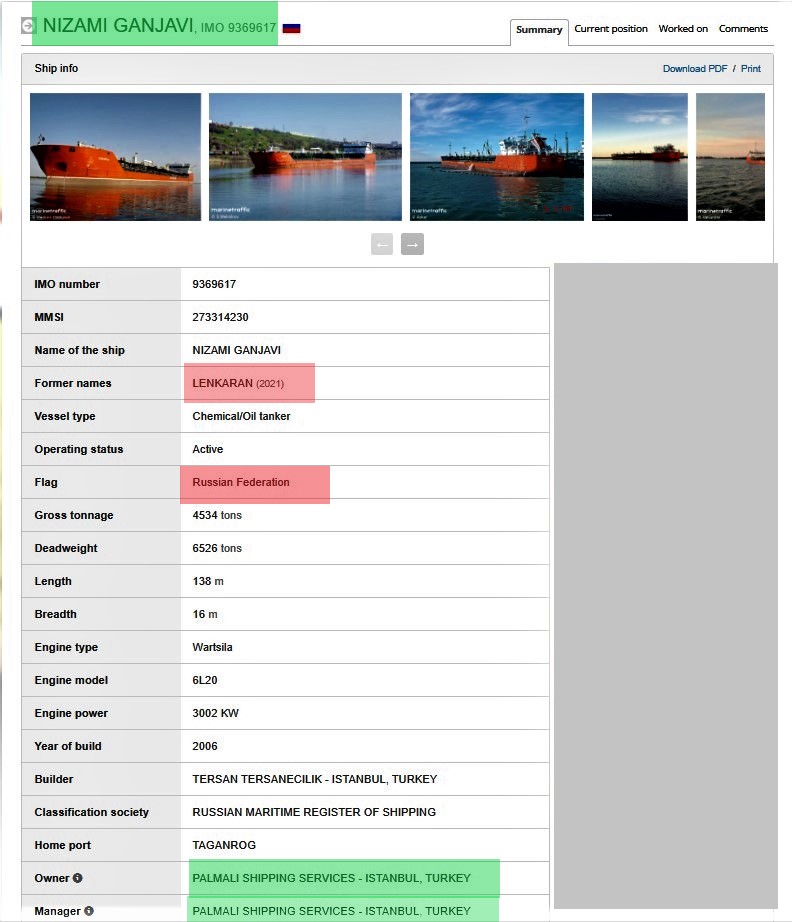
In global industry practice, shipbuilding companies traditionally name the tankers they construct after prominent historical figures or notable landmarks of their country. However, it should be noted that a vessel bearing the name of a distinguished historical figure or a place associated with a particular state is not necessarily required to belong to that state’s maritime fleet.
Data from Balticshipping, a platform that tracks tanker movements, clearly indicates that the tanker Nizami Ganjavi is owned by Palmali Shipping Service and operates under the Russian flag. The vessel, identified by IMO 9369617 and MMSI 273314230, was built in 2006 and was originally named Lankaran before being renamed Nizami Ganjavi.
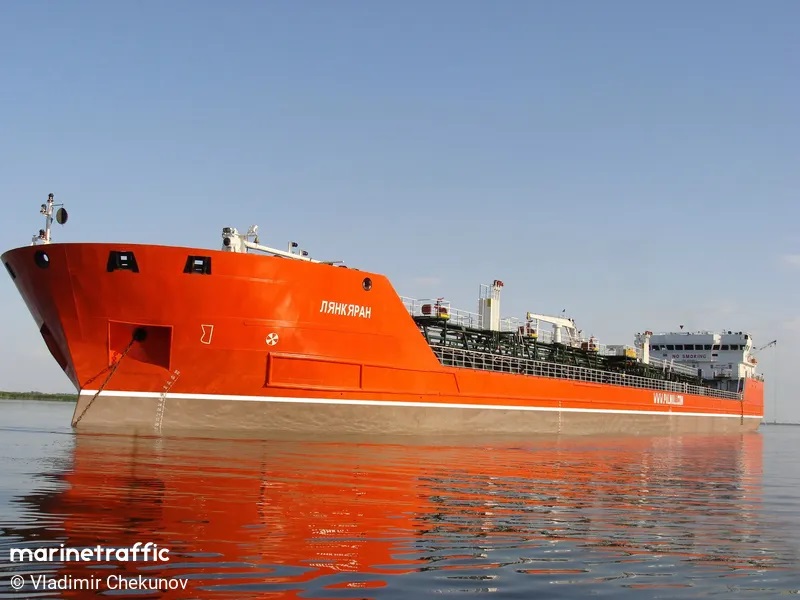
Reputable tanker-tracking platforms such as MarineTraffic, MyShipTracking, ChinaShipbuilding, and VesselFinder likewise confirm that the oil tanker Nizami Ganjavi operates under the Russian flag.
The involvement of the tanker owned by Palmali Shipping Company in Russia’s “shadow fleet,” its participation in transporting various questionable cargoes across the Black and Azov Seas, and, as alleged by the EU, its role in supplying jet fuel and other critical shipments to Russian military units stationed in Syria, have all contributed to the negative perception of this shipping enterprise.
It is possible that in 2024 the company, together with the Russia-owned tankers Azov (IMO 8943260) and Koysuq (IMO 8883252), ranked among the top vessels in the “shadow fleet” for transporting covert Russian cargoes to Syria under the same scheme.
The “trio” reportedly concealed their entry and exit from Syrian ports by turning off their transponders in either the northern or southern parts of the Mediterranean. This method was repeatedly used by the same three vessels to carry out maritime shipments from Russia’s Black Sea ports to Syria. The aviation fuel and diesel supplied by these tankers from Russia’s Azov ports to Syria were sourced from Iran. Shipments of this kind intensified in 2023 following continuous attacks by Ukrainian Defense Forces on the well-known SIG tanker, which was supplying jet fuel to Russian forces in Syria via the Black Sea. All three tankers have been subjected to sanctions, as noted in the International Maritime Organization’s (IMO) Assembly Resolution A.1192 (33).
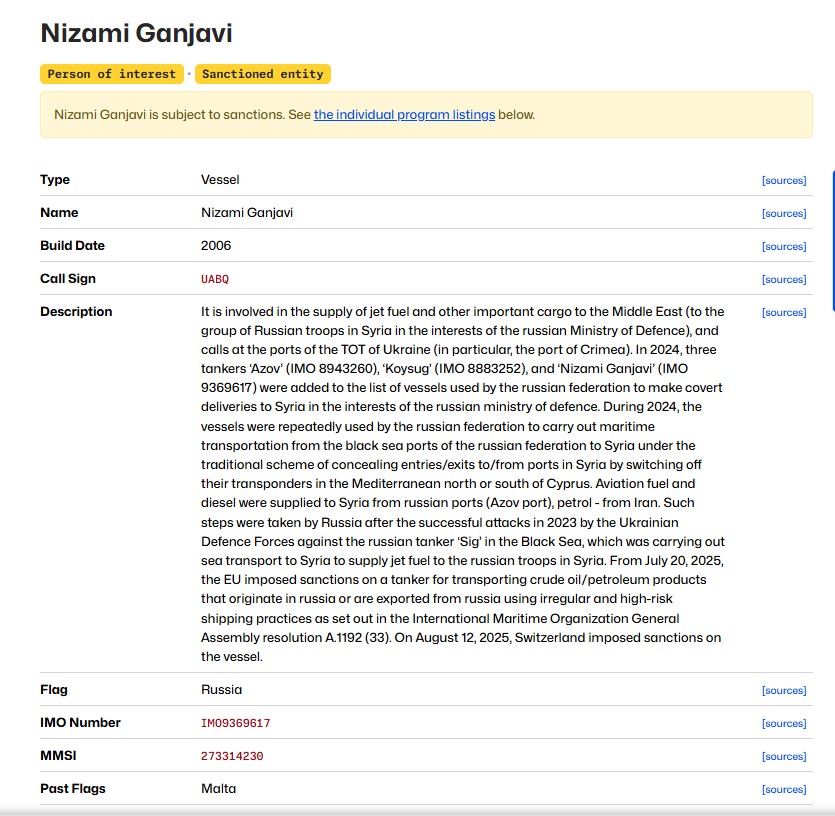
Information released by Ukraine’s intelligence services indicates that, at certain times, Palmali Holding changed the names of its vessels and, flying the Liberian flag, became part of the “shadow fleet.” These ships reportedly employed high‑risk, deceptive practices, such as turning off their Automatic Identification System (AIS) transponders. The goal of these actions was to transport Russian oil to third countries while evading sanctions and price caps imposed by Western nations kse.ua
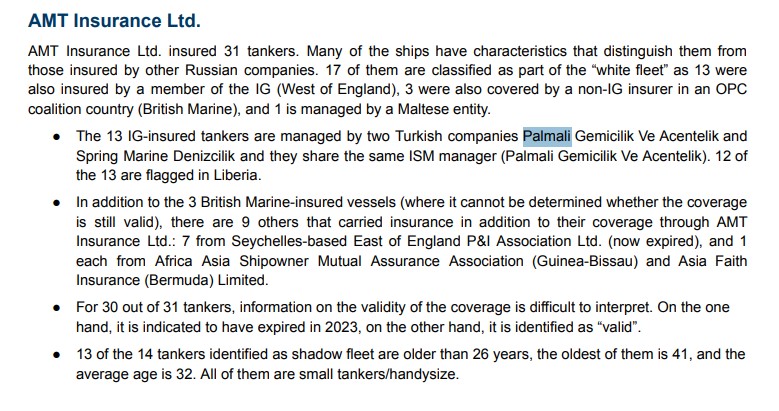
These facts represent just one of many instances confirming the links between Palmali Group, Palmali Shipping, and the transport‑logistics assets and vessels under the company’s control with Russia. The company’s head, Mubariz Mansimov, has maintained long-standing, close ties with Russian shipping and transport groups, reflecting Palmali’s years of involvement in this covert scheme. Moreover, in 2019, Mansimov registered a company called Spring Marine in Istanbul and established its branches in Rostov-on-Don (Russia) and Varna (Bulgaria).
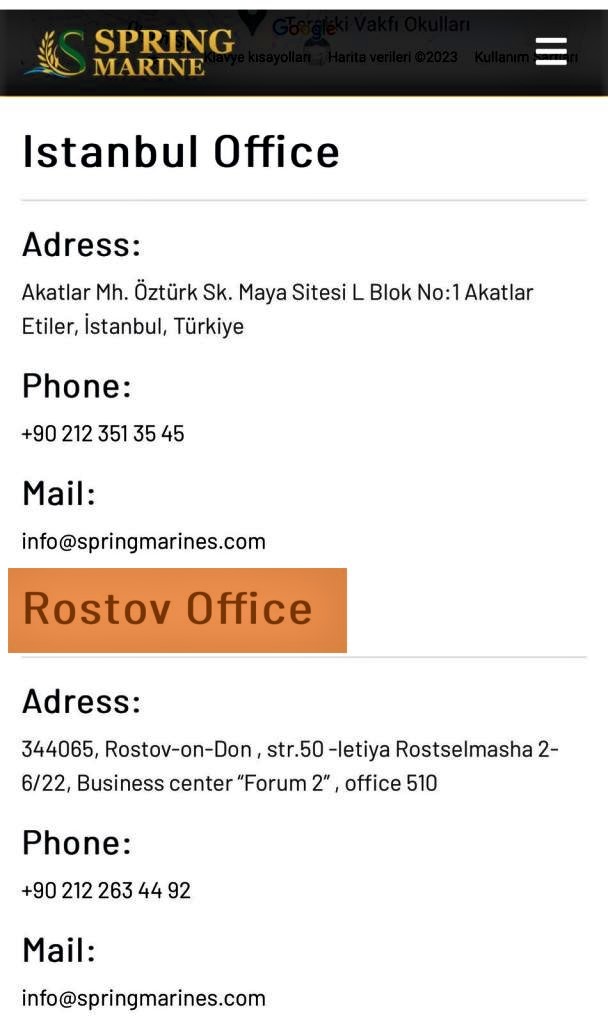
According to subsequently disclosed documents, the newly established company was involved in transporting Russian and Iranian oil across the Mediterranean. It appears that, to circumvent U.S. sanctions on Iran, Palmali Shipping’s head, Mubariz Mansimov, employed a scheme that effectively placed Turkey at a disadvantage in international markets. We outline this scheme as follows:
Jennifer L. Devis, U.S. Consul General in Istanbul, sent a letter to Mubariz Mansimov concerning Palmali Rostov LLC, requesting detailed information on the company’s involvement in illicit activities while U.S. sanctions on Iran were in effect. In response, Mansimov stated that Palmali Rostov LLC had been declared bankrupt by the Russian Arbitration Court on January 8, 2019; that the company and its vessels were no longer under the control of Palmali Holding in Istanbul, which he owns and manages; and that the Russian Arbitration Court had appointed a trustee to oversee the company under a power of attorney.
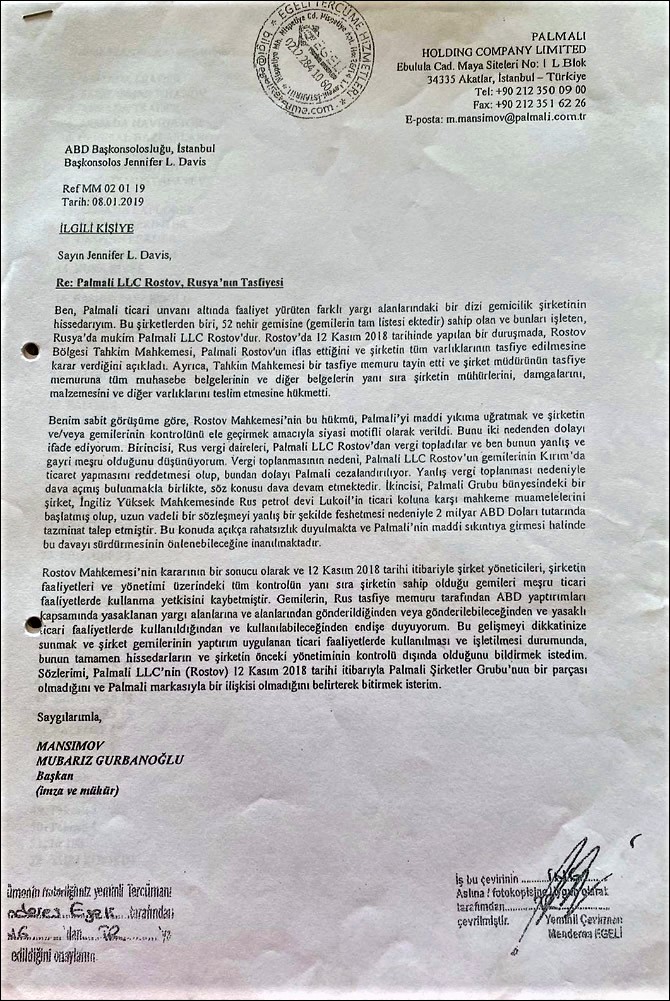
In his letter, Mansimov not only acknowledged the appointment of a new trustee to the company but also stated that his vessels would continue to serve countries subject to U.S. sanctions, as Palmali Maritime and the other companies he manages bear no responsibility for the liquidated entity.
The crucial point here is not the letter itself or Mansimov’s response, but the fact that he coordinated with official Russian state bodies in the execution of this fraudulent scheme.
Until Palmali Rostov was declared bankrupt, its main assets - including bank funds and vessels - were transferred to the account of the aforementioned Spring Marine company, which then continued the illicit activities of its predecessor.
The following facts further confirm that the primary activity of the newly established company was the covert transport of Russian crude oil from Rostov-on-Don to the port of Burgas in Bulgaria and to refineries in other countries. blackseanews.
1. The tanker ZUMRUT ANA (IMO 9633549) was registered under Armada Voyager Seven Co. Ltd, managed by Palmali Shipping & Agency. Its voyage records indicate routes departing from Rostov-on-Don to ports in Bulgaria and other regions.

It should be noted that Mubariz Mansimov drew attention for naming a tanker after his mother (ZUMRUT ANA) and using it to smuggle oil shipments, which ultimately led to the imposition of sanctions against him.
2. The tanker Mubariz Ibrahimov is operated by WHITE ROCK CORP LTD, a subsidiary of Palmali Shipping & Agency (address: Block L, Maya Siteleri No. 1, Ebululamardin Caddesi, Akatlar Mah., Beşiktaş, 34335 Istanbul, Türkiye). Documents indicate that this vessel was used to transport crude oil via smuggling routes from Rostov-on-Don to the port of Toros in Türkiye.
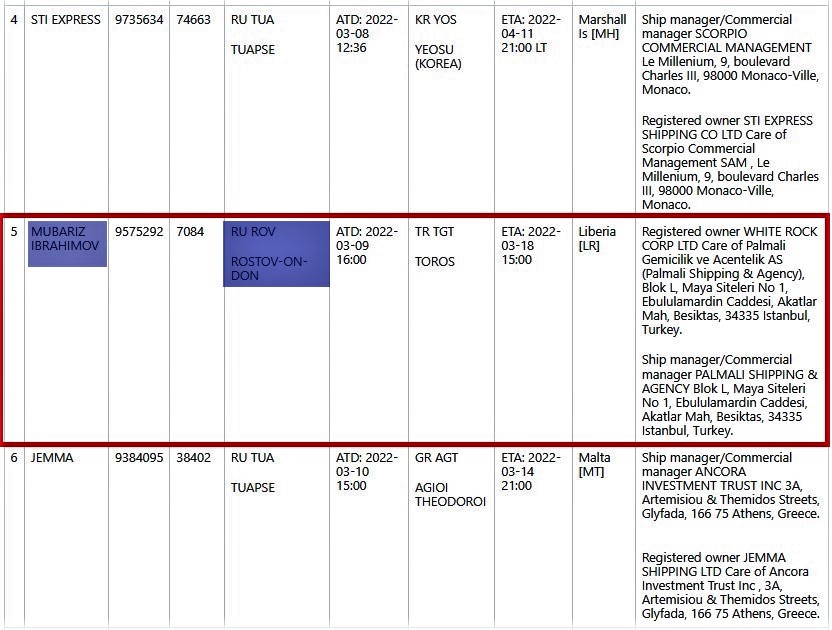
The vessel AGDASH (also known as AGVANIS), operated by Palmali Shipping & Agency, has reportedly entered Iran’s Bandar Abbas port on multiple occasions, transporting petroleum products for Mawared Energy, a Dubai-based company.
Regrettably, a ship named in honor of one of Azerbaijan’s brave sons and heroes of the 44-day Patriotic War, Khudayar Yusifzadeh, was also used in these illicit transport operations.

How Iranian Oil Was Transported to Evade U.S. Sanctions?
In 2019, the U.S. Department of the Treasury’s Office of Foreign Assets Control (OFAC) launched an investigation into Palmali Shipping for violating U.S. embargoes on Iran and Syria.
According to an article on the Australian site Newsblaze, titled “PALMALI Group of Companies Accused of Violating USA Sanctions” the vessels Agdash (sailing under the Russian flag) and Agsu (sailing under the Maltese flag) belonged to the Palmali Group of Companies. By circumventing U.S. sanctions, these ships were used to transport oil from Iran.
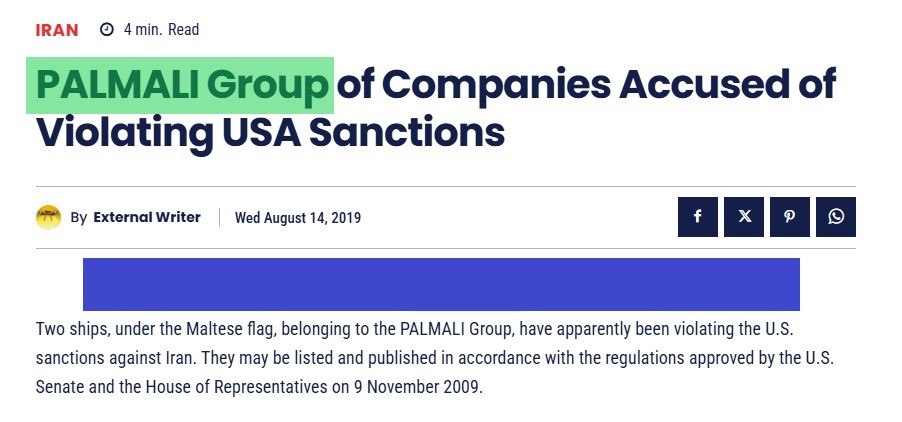
In 2019, the vessels departed fully loaded from Iran’s Bandar Abbas and Siraf ports on 16 occasions, delivering their cargoes to Al-Fujairah port in the United Arab Emirates (UAE). Reports indicate that both ships switched off their Automatic Identification System (AIS) transponders while entering Iranian territorial waters, only reactivating them when approaching Al-Fujairah.
Journalist Recep Canpolat of Deniz Haber reports that, according to documents from Iran’s Bandar Abbas port, the vessel Agdash initially departed in a different direction in March before proceeding to the UAE’s Fujairah port. Satellite tracking records from May show that another vessel, Agsu, deviated from its planned course - heading toward Bandar Abbas instead of Basra, Iraq - before turning off its tracking device.
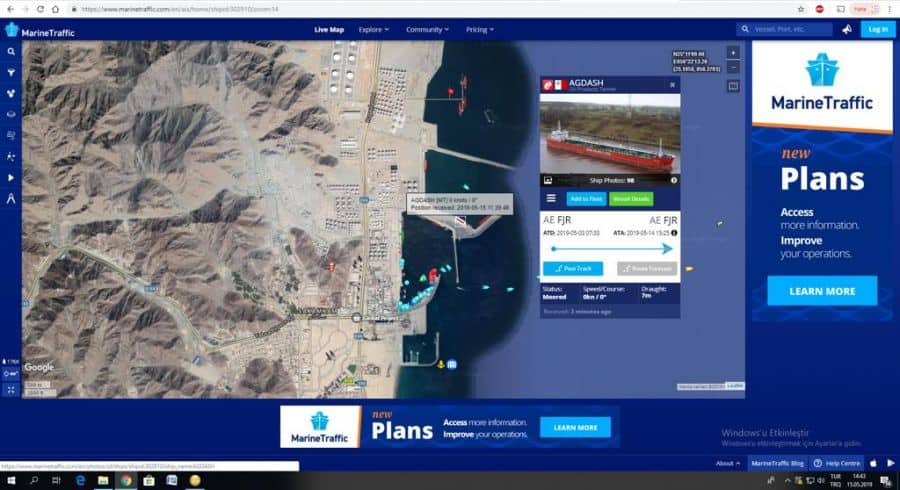
According to MarineTraffic.com’s route data for Agsu, the vessel departed Fujairah and was scheduled to arrive in Basra on May 14. However, its latest position reports showed it heading toward Bandar Abbas in southern Iran. The ship’s last signal was recorded on May 13, and the next day it was tracked near Hormuz Island in the Persian Gulf, en route to Basra.
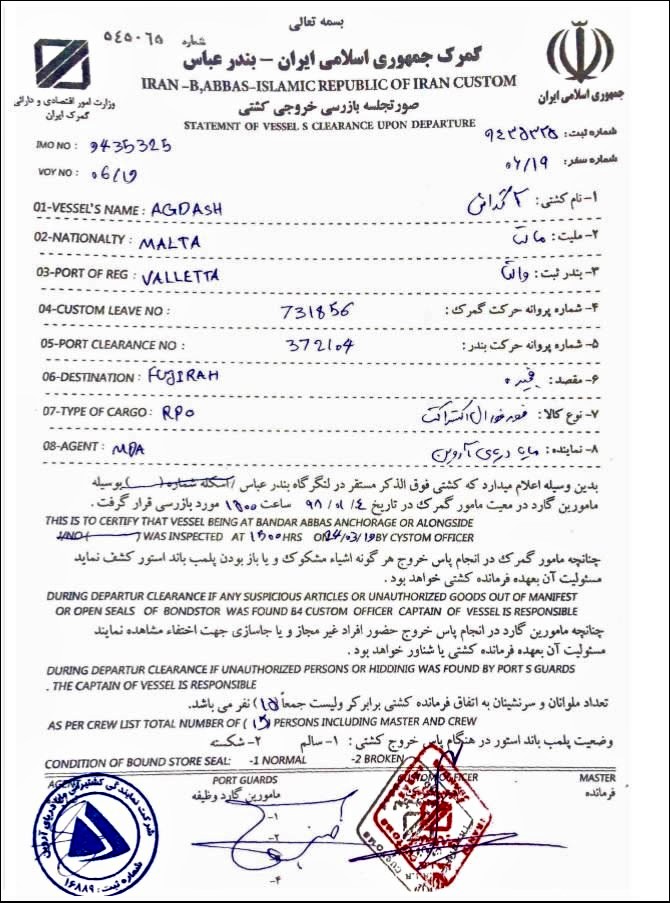
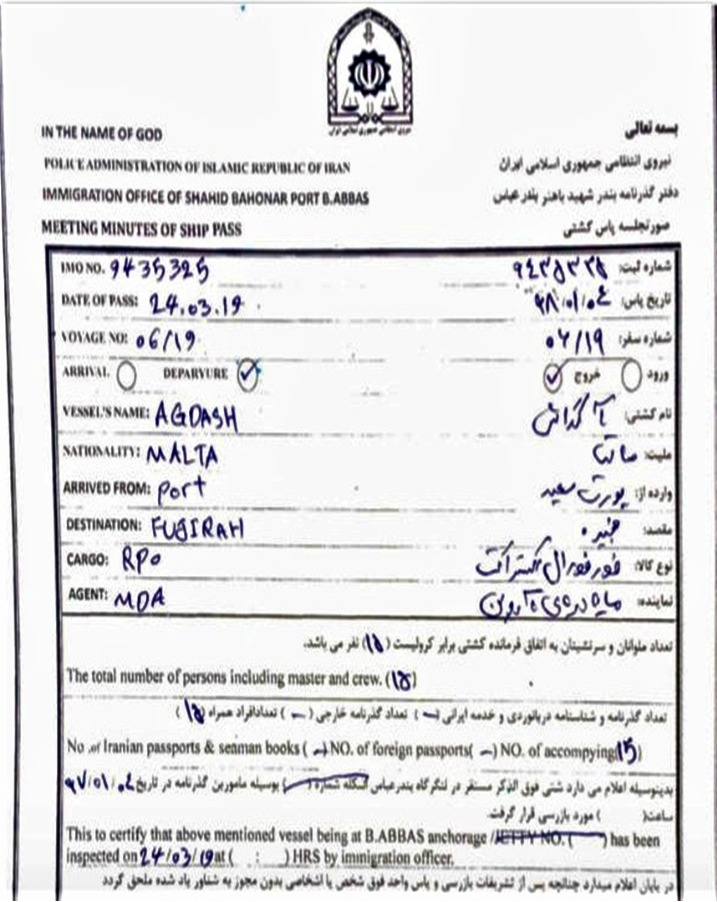
“They only realized that the Automatic Identification System (AIS) signal was active when they reached Hormuz and immediately switched off the devices. This demonstrates that, although they attempted to evade the satellite tracking systems, they ultimately revealed their movements,” Canpolat stated. He added that, although the trade in question occurred between Iran and the UAE, the company is based in Turkiye, raising concerns about the potential repercussions for Turkiye’s reputation.
In his investigation, Canpolat reports that, during various meetings in Iran, he found that Palmali Shipping violated the embargo 10 times with one vessel and 7 times with another while transporting petroleum products.
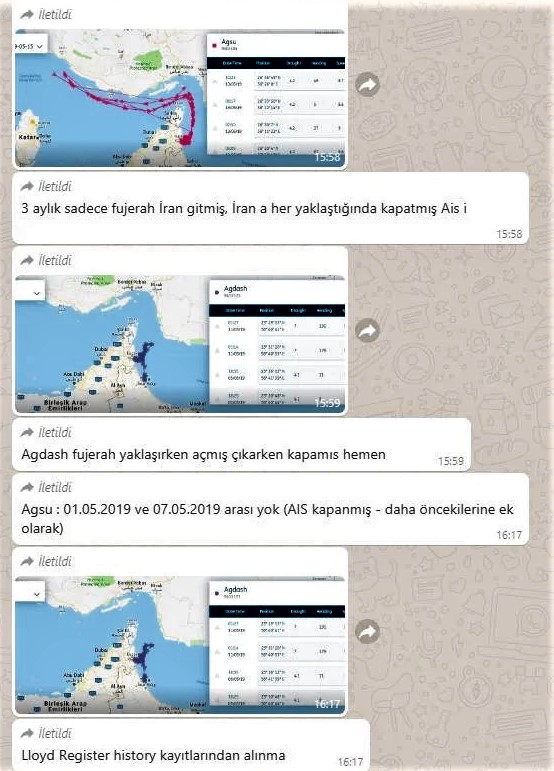
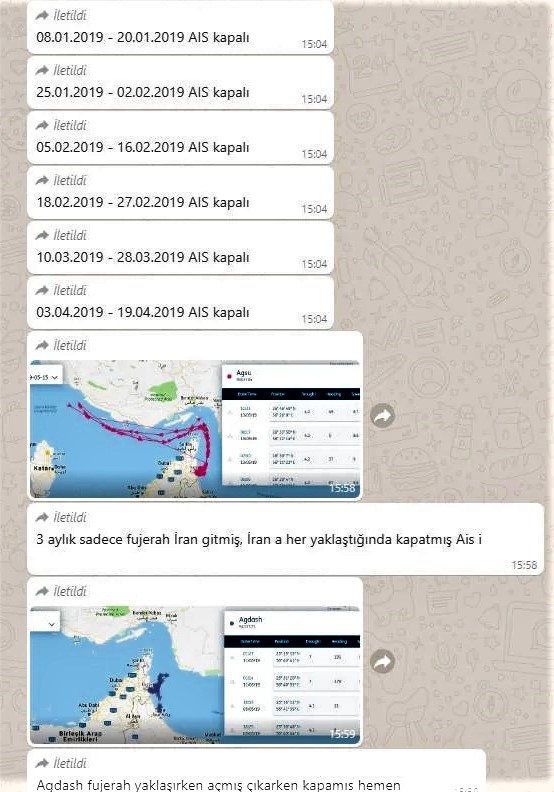
(Payment order confirming the transfer via the U.S. SWIFT system for deliveries by Palmali)
The company’s owner, Mubariz Mansimov, again denied the allegations, claiming the vessels did not belong to his company. In response, we provide photographs from ship-tracking platforms and emphasize that determining a vessel’s ownership can be done easily by examining the logos displayed on the ships.
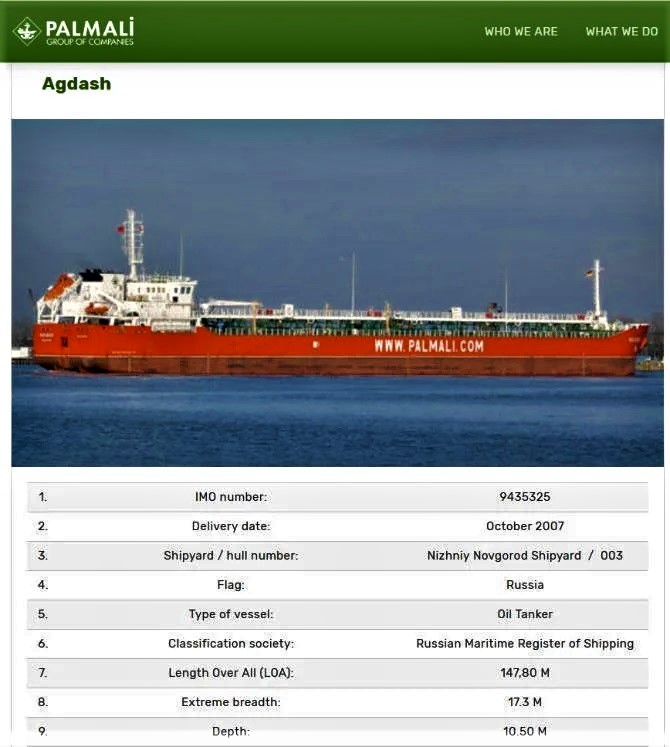
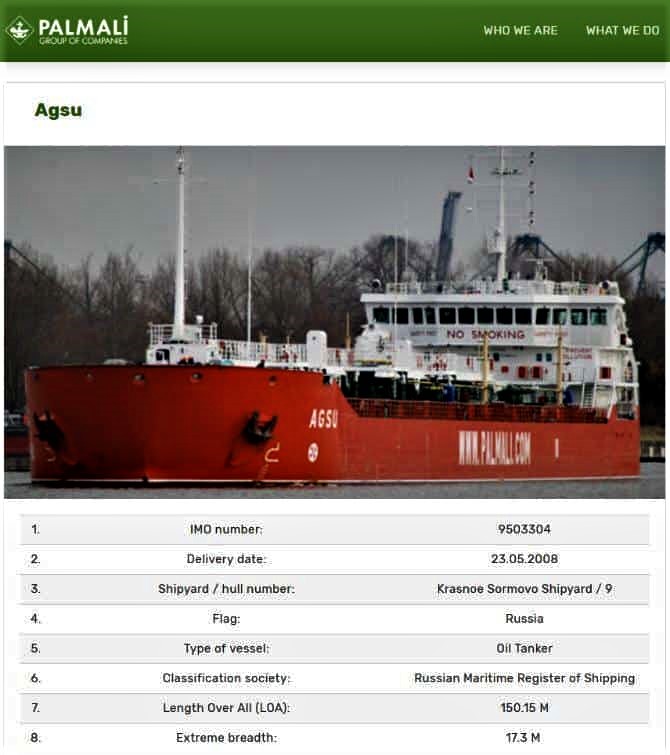
Nonetheless, the documents indicate that the vessel Agdash, chartered by UAE-based Mawared Energy, was invoiced to Palmali Shipping as a time charter. The records further show that Mawared Energy used the U.S. SWIFT system to transfer payments for Agdash through the brokerage company R Shipping, owned by Igor Raspopov, into Palmali Shipping’s accounts at QNB Finansbank.
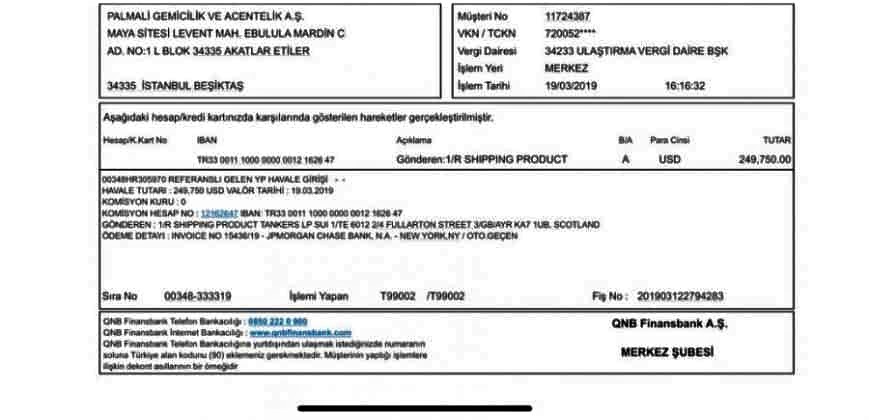
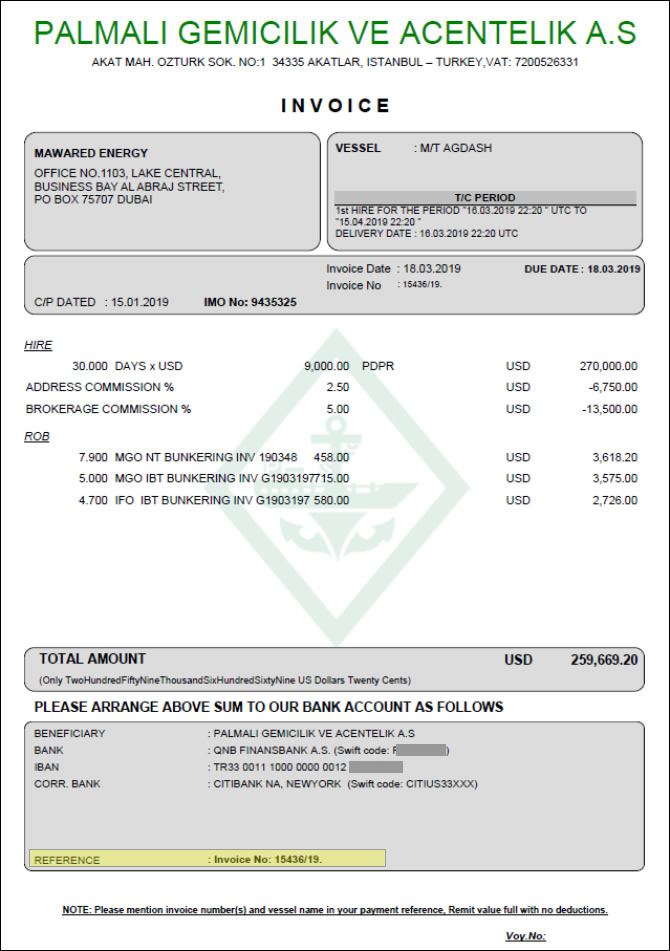
In the report titled “Sanctions Against Oil Trade Involving Iran and Syria,” published by the U.S. Department of State and OFAC on March 25, 2019, the companies that violated the embargo, the methods they used, and the sanctions imposed on them are detailed.
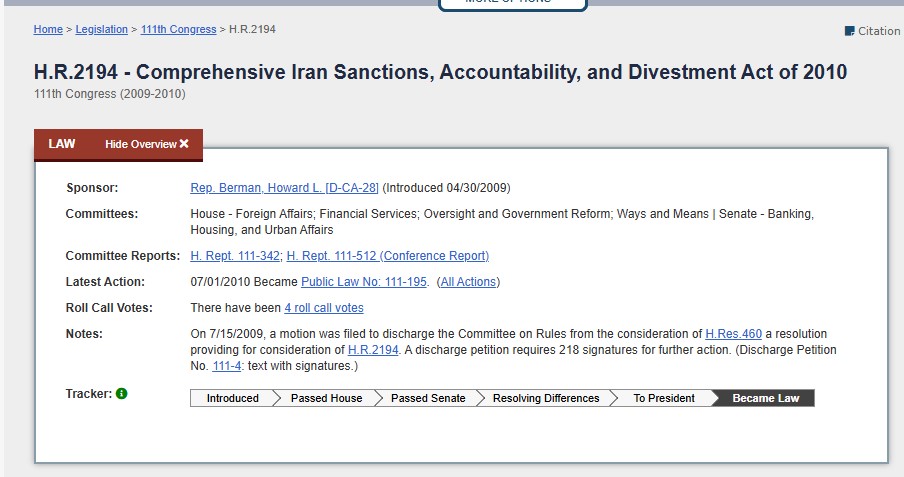
According to available information, the vessel Shahdeniz, owned by Palmali Shipping, violated the embargo in 2016 while transporting oil from Syria. Sailing under the Maltese flag, the ship was later sold to another company and renamed following the scandal. However, photographs of the vessel captured by the tanker-tracking platform VesselFinder still displayed the Palmali name on its hull.
The site also reports that Mansimov paid nearly $200,000 to settle the issue and was subsequently pardoned for violating the embargo.
It is worth noting that the Agsu tanker, also owned by Palmali Shipping, was built at Russia’s Krasnoye Sormovo shipyard in Nizhny Novgorod under an order from Palmali Co. Ltd. Before the outbreak of the Russia-Ukraine war, it operated under the Russian flag, facilitating the transport of covert cargo.
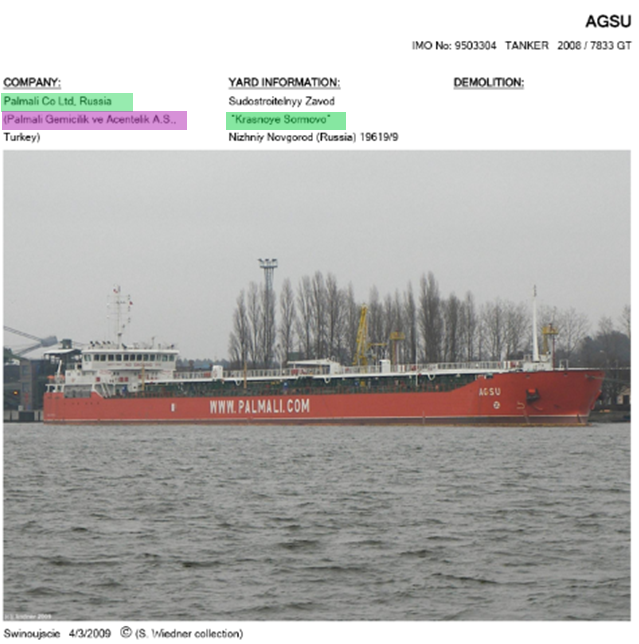
Additional Facts
Several research centers have published reports highlighting Palmali’s involvement in smuggling activities. According to these reports, Palmali—one of the shipping companies evading Western sanctions—declared Ukraine’s Kherson port as the destination for a vessel departing from the Nemrut port in İzmir. However, the ship never arrived in Kherson; instead, it traveled roughly 350 kilometers southeast of Ukraine, disappeared from international radar for ten days, and ultimately docked at a Russian port. antikor
Despite sanctions imposed six years ago, Palmali continued operations under the Russian flag in the Black, Baltic, and Azov Seas, serving as part of the so-called “shadow fleet.”
According to research by BlackSeaNews and the Monitoring Group of the Black Sea Strategic Studies Institute, illegal maritime transport of crude oil and petroleum products from Russian ports in the Black and Azov Seas surged dramatically in May 2023. Approximately 250 tankers exported a total of around 15.5 million tons of oil and petroleum products. These cargoes were carried primarily by two types of vessels: crude oil tankers and oil-chemical (petroleum product) tankers. Unsurprisingly, vessels owned by Mubariz Mansimov were at the forefront of this operation.
While the company insured some of its tankers through the international system as members of the “white fleet,” it relied on non-“IG” insurers for many others, often working with Maltese entities that facilitate some of the most opaque operations in maritime transport. In fact, these tankers - part of the so-called “shadow fleet” - transported Russian fuel products under the Liberian flag to Africa and other regions.
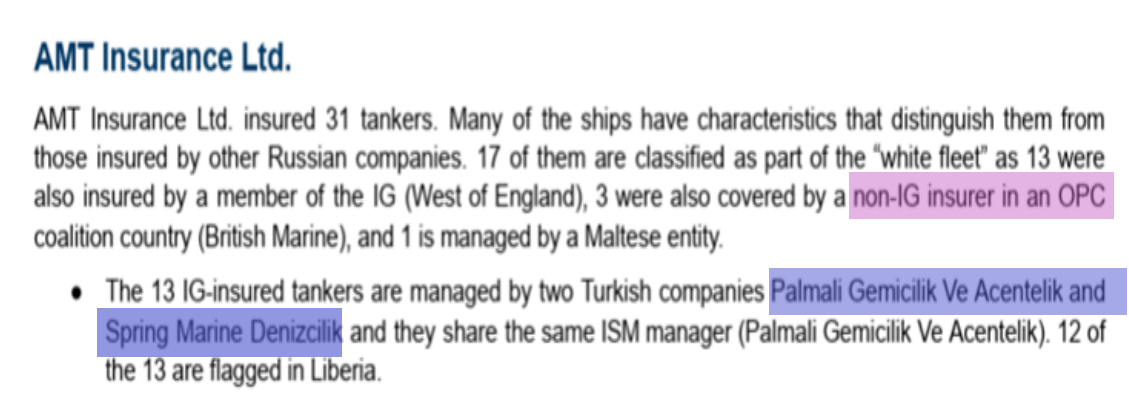
Allegedly, Mubariz Mansimov maintains close ties with a Dagestani “shadow fleet” family that transports Russian crude oil and petroleum products through the Kerch Strait as well as the Black and Azov Seas using a “bunkering” (supply) scheme. The fact that Russian oil carried by Palmali passes through the same ports and straits and is concealed using the same bunkering method, along with other operational similarities, suggests shared interests between these tanker groups. For instance, Aslan Jamaldinovich, owner of LSCapital LLC (TIN: 7703426420) and founder of Russia’s SBC Dolina LLC (TIN: 7714420564), is recognized as one of the individuals directing the route maps for sanctioned tankers.
Aslan Jamaldinovich is the son of Jamaldin Emirmagomedovich, a businessman from Astrakhan who owns and oversees a network of Russian shipping companies operating out of the port of Olya in the Astrakhan region of the Russian Federation. Since 2021, Jamaldin Emirmagomedovich’s companies have been engaged in exporting Russian military cargo and have signed more than 200 international contracts related to the maritime transportation of military goods. His fleet also manages MG-Flot LLC, a sanctioned shipping company involved in transporting weapons from Syria, Iran, and North Korea to Russia, as well as in shipping Iranian oil.
Among their close associates is Oleksandr Lapko, General Director of SBC Dolina LLC, who works closely with Russia’s Sberbank - one of the primary creditors that previously financed Mubariz Mansimov’s shipping ventures.

Investigations by BlackSeaNews and the Monitoring Group of the Black Sea Strategic Research Institute reveal that most vessels operating out of Astrakhan - including tankers owned by MG-Flot LLC - are coordinated from a single command center. These ships routinely disable their AIS transponders while transporting crude oil and petrochemical products from Russian ports in the Black and Azov Seas to Syria, the Middle East, and Africa.
Another noteworthy point is the connection between Palmali Shipping’s registration records and Malta. A significant number of the company’s vessels are registered there specifically to support Russian maritime logistics. For example, the high-tonnage tanker Palmali Voyager is listed in the Russian Maritime Shipping Register and operates out of Volgograd under the Maltese flag.
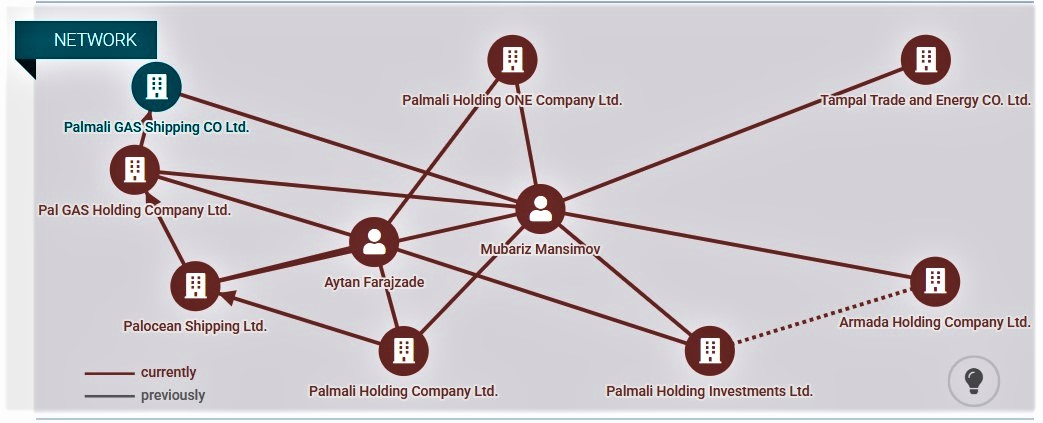
The majority of companies comprising Russia’s “shadow fleet” are registered and managed from Malta. In recent years, to evade Western sanctions, Russian crude oil and petrochemical products have been transported primarily by vessels flying the Maltese flag. These tankers effectively operate as large-scale Russian “bunkering” operations based in Malta. theshiftnews
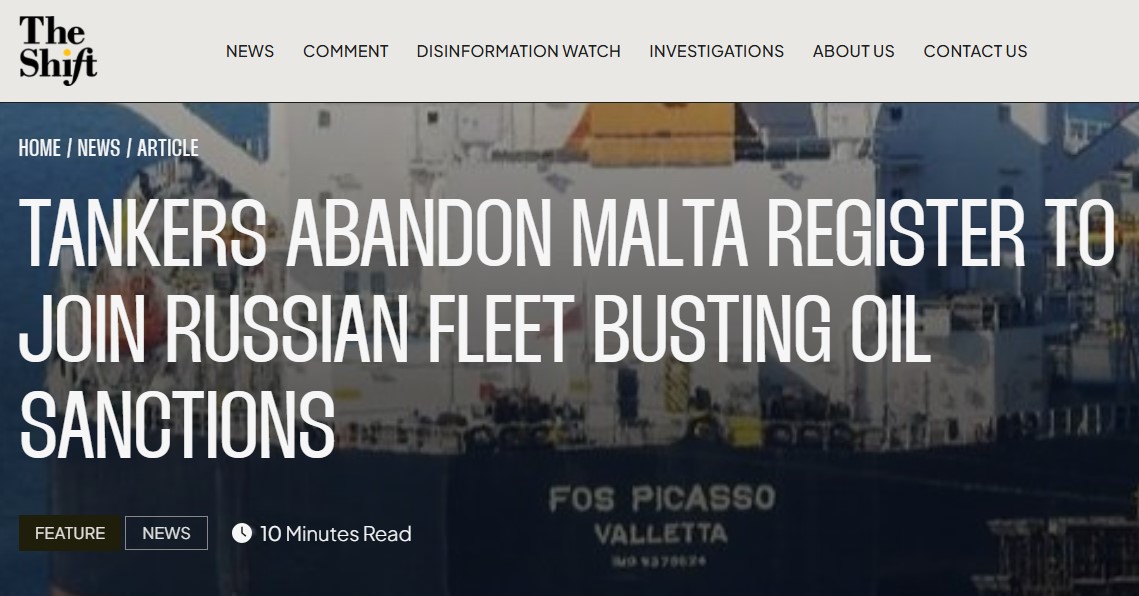
The Council of Europe’s Committee of Experts on the Evaluation of Anti-Money Laundering Measures (MONEYVAL) has assessed Malta as falling short of international standards in combating money laundering and terrorist financing, noting that the country fails to fully comply with relevant regulations.
According to the International Organized Crime Index, Malta is identified as a major transit hub for global smuggling and economic crime, particularly involving natural resources, fuel, and oil. Vessels traveling from the Middle East, Tunisia, Morocco, and Libya toward Malta reportedly use this route extensively for illicit trade.
The facts outlined above, together with reports from international organizations, unequivocally confirm Palmali and its leadership’s involvement in opaque and complex operations, non-transparent maritime business activities, and, in particular, the smuggling of Russian oil, gas, and other goods under Western sanctions through the “shadow fleet” scheme.
In light of the evidence presented, Mansimov - who frequently speaks of decency - can no longer conceal his role as part of a major transnational economic crime network operating through Russia’s “shadow tankers.”
(to be continued)




















